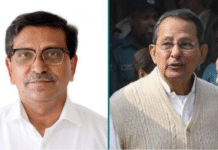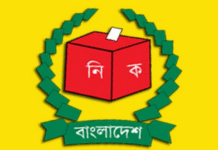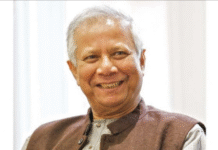Bangladeshi Govt Misses Court-Ordered Deadline over Photographer’s Detention

By Kamran Reza Chowdhury on Oct 16, 2018 04:55 pm
Bangladesh’s government has not observed a one-week deadline imposed by a court to explain why it is holding photographer Shahidul Alam indefinitely without bail.
The High Court issued the deadline on Oct. 7 when attorneys for Alam presented his fifth formal bail request. The 63-year-old, one of South Asia’s most prominent photojournalists, was arrested on Aug. 5 for allegedly violating the nation’s online defamation law.
A state prosecutor, Bashir Ullah, said the government was “not bound” to submit a written response to the High Court ruling but would give an oral reply at a hearing on Sunday, Oct. 21.
“In our judicial system, the government is not bound to submit any written reply for such court rules. We will make verbal presentation at the hearing on Sunday,” Ullah, who is also a deputy attorney general, told BenarNews.
Ullah said the High Court was expected to hear the bail petition “in case no problem arises.”
Attorney General Mahbubey Alam would present the government’s opposition to Alam’s petition for bail, he said.
One of the photographer’s attorneys, Jyotirmoy Barua, confirmed to BenarNews that the bail hearing would take place over the weekend.
“The charges against Shahidul are not correct. So, he must be given bail,” Barua said.
Ullah said the government opposed bail for Alam because he had committed a “seditious” offense.
If found guilty, Alam could get 14 years in prison under Section 57 of the Information and Communication Technology Act (ICT), which criminalizes online defamation, prosecutors said.
Ullah said the section provided no bail for online defamation.
Alam had spread “false and fabricated” news in August during mass protests demanding road safety, Ullah alleged.
“Given the gravity of his crime, he is not entitled to get bail according to legal practice and rule,” the deputy attorney general said.
‘Mentally sick’
Alam was arrested after he posted videos on Facebook and gave an interview to Al Jazeera television, in which he criticized the government’s violent response to weeklong student-led protests over traffic-related fatalities.
The day after his arrest, a barefooted Alam grimaced and staggered as he was presented to the courthouse by uniformed officers. He loudly told reporters that he had been tortured while under detention.
In a recent interview with Reuters, Prime Minister Sheikh Hasina described Alam as “mentally sick.” She said she was convinced he had instigated trouble by spreading what she called “false news” about the street protests, which broke out after two students were run down by a bus.
Hasina also alleged that Alam’s great uncle was against the country’s independence in 1971, but offered no evidence.
But Alam’s wife, Rehnuma Ahmed, rejected Hasina’s accusations.
“I don’t think people in positions of power should be saying things which could be read as attempts to imperil the investigation or to influence the judiciary,” she told BenarNews in an email.
Local and international human rights organizations as well as media groups have urged Bangladesh to release Alam.
Earlier, Saydia Gulrukh, one of the directors of Drik, a Dhaka-based multimedia production company founded by Alam, condemned efforts by Bangladeshi authorities to link the photographer with “anti-liberation forces.”
She said Alam had used his own funds to set up the Drik Gallery in 1989 and actively developed photo archives in support of Bangladesh’s war of independence from Pakistan.
On Tuesday, meanwhile, dozens of photographers and students demonstrated at the Dhaka University campus and condemned Alam’s ongoing detention.
“We think the charges against Shahidul Alam are false. So, we demand his immediate release and withdrawal of the false case,” Tanvir Murad, one of the rally organizers, told BenarNews.









